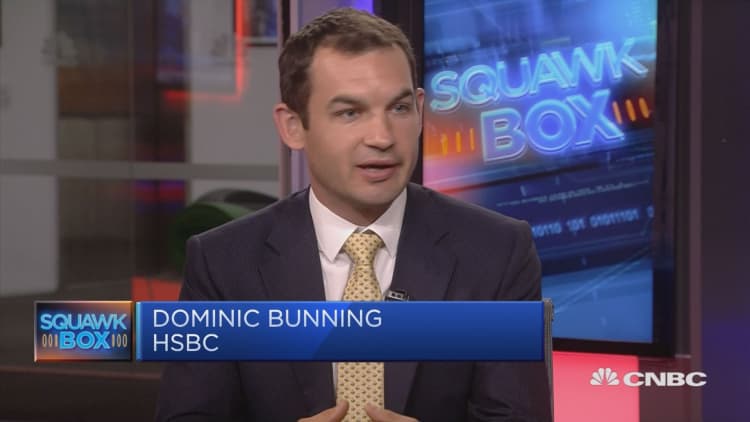The U.S. and China may be ramping up their trade rhetoric in a series of tit-for-tat threats, but Hong Kong’s former representative to the World Trade Organization, Stuart Harbinson, says the system isn’t currently in danger.
“What we have now is one particular country, the U.S., that is saying that the system is being unresponsive, but the EU and China are still firmly backing the system,” said Harbinson, who represented Hong Kong, and subsequently the Hong Kong Special Administrative Region of China, in the WTO from 1994 to 2002.
In the latest trade escalation between Washington and Beijing, the U.S. is potentially considering a curb on Chinese investments in U.S. technology firms and restricting some technology exports to China. China has consistently said it is ready to fight back.
Harbinson, who now advises clients on trade issues at global communications firm Hume Brophy, likened the global trade body to a plumbing system that was “antiquated” and could either be ripped apart or improved on.
“I think most of the countries that are involved in the WTO see it the second way: Let’s keep the basics, but we need to move forward and improve on that system substantially,” Harbinson said.
China, Japan and the European Union, which have felt the brunt of Trump’s “America First” policy, have each lodged complaints at the WTO in response to the U.S. tariffs on imported steel and aluminium — which Washington justifies on the grounds of national security.
Rising protectionism and unilateral action, however, are calling into question the relevance of the international body’s ability to champion the principles of free, equal and non-discriminatory trade.

At the same time, a U.S. withdrawal from multilateral agreements such as the Trans-Pacific Partnership and a shift in White House preference toward bilateral agreements are threatening the viability of large free trade agreements and, consequently, its championing bodies.
Still, Harbinson said there's value in the WTO in its ability to “set a lowest common denominator, which is valuable — there’s a back stop.”
“The WTO is sweeping up behind and gradually raising the bar at a multilateral level,” Harbinson told CNBC’s “Squawk Box.” “There’s a lot of activity in the free trade agreement area and I don’t expect that to die down. On the contrary, I think it will ramp up.”
Calling the WTO “basic plumbing” that's part of a global trading system, Harbinson said, “In many cases there are very complex global supply chains and maybe the WTO rules haven’t quite caught up with the latest commercial practices in this area so there is a case I think, that can be made that we need to keep the basic plumbing, but we need to try and improve on it for the future.”

